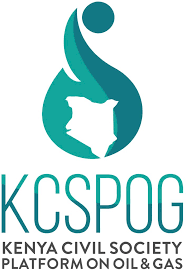Webinar Update: A Gendered Approach to Kenya’s Environmental and Social Impact Assessment (ESIA) Process in the Extractive Sector
The webinar was convened by Oxfam in Kenya (OiK), Transparency International Kenya (TI-Kenya) and Kenya Civil Society Platform on Oil and Gas (KCSPOG). The webinar sought to address issues relating to: inadequate consultation of women including in interactions between communities and companies; inadequate consideration of issues unique to women and girls; and lack of disaggregation of impacts and mitigation measures within ESIA study reports. In doing so the webinar envisioned the following expected outcomes: an enhanced understanding of the current state of the ESIA process; and policy proposals on how a gendered approach can be adopted in ESIA studies and subsequent audits to ensure sustainability.
It brought together over 40 stakeholders form various sectors including representatives from: Government of Kenya (GoK); private sector oil and gas companies; Civil Society Organizations (CSOs); Academia; and members of the general public.
To set the stage for discussions held during the webinar Oxfam in Kenya (OiK) and Transparency International Kenya (TI-K) made presentations based on their work experience in the extractive sector. TI-K’s presentation focused broadly on why women’s voices are important in the ESIA process and cited examples of the environmental and social impacts that directly affect the lives of women and girls. OiK’s presentation focused on a case study of South Lokichar Development ESIA. In particular, the presentation reviewed the following considerations: regulations and international standards; stakeholder engagements; key social considerations; key environmental considerations; and environmental and social management plans.
From discussions held during the webinar, the major findings included: the absence of a framework to guide the evaluation of efficiency public participation and consultation efforts; and the need to incorporate gender mainstreaming provisions in existing frameworks.
